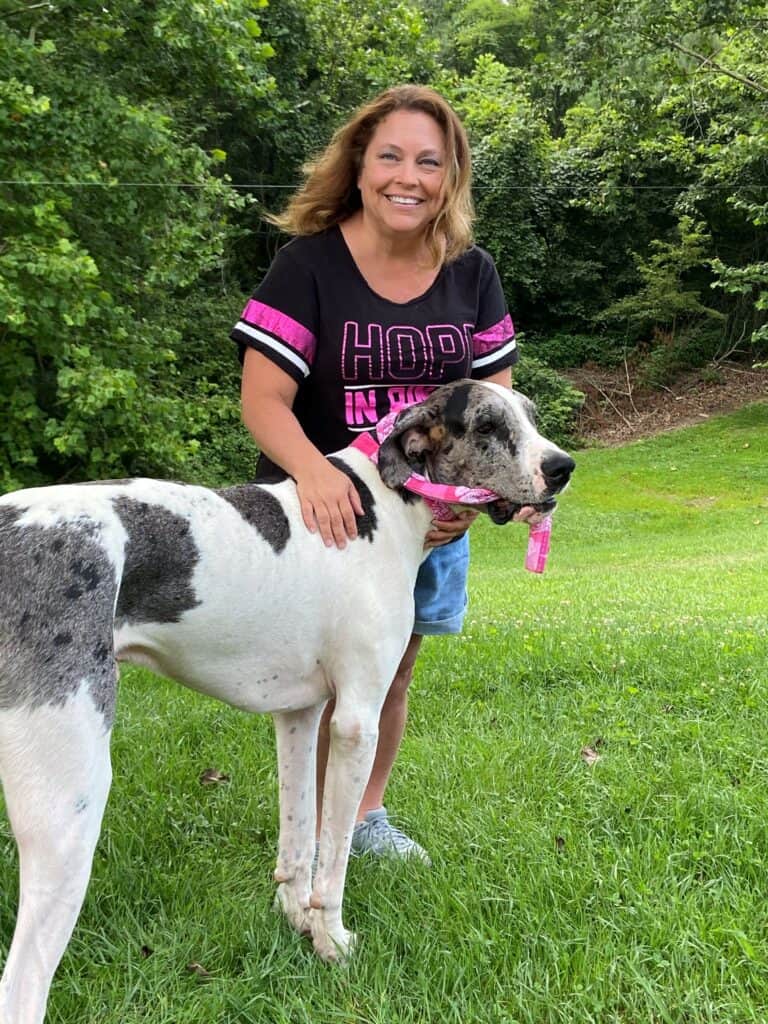
Laura Grueser has worked in the community health space and in hospice programs. Four years ago, she joined the Komen Patient Care Center as a patient navigator, where she helps guide breast cancer patients through the health care system. Her job is essentially to help a patient traverse the health care system – including strengthening the relationship between the patient and their care providers, arranging services, helping with appointments, finding resources and more.
Laura lives in a small midwestern town, where resources can be limited, and she’s seen firsthand issues connected to access to care in her community. “When I first started as a navigator, a big push was to get people screened, and to do that, we had to use mobile screening units most of the time because there weren’t other ways to get people screened due to the distance to the closet mammography facility,” she said.
At Komen, Laura navigates people from across the country and knows what’s available in one community isn’t necessarily available in all communities. But a part of her job is to learn about the tools and resources available in the breast cancer space so she can provide one on one education to the patients she works with and help them access the care and resources they need.
Laura loves learning about new tools and emerging research that she can share with the people she’s navigating. “The information we provide can help someone take charge of their health,” she said. “It gives me hope, and then in turn I can pass that on to a patient. Let’s say someone has lymphedema, if there’s an advancement in the treatment of lymphedema, something that’s going to make someone more comfortable. That gives people hope.”
While Laura works with people who have all stages of breast cancer, she works with a lot of patients with metastatic breast cancer. “When you’re told you have incurable cancer, you have metastatic cancer, it’s devastating,” she said. “We want to keep patients comfortable and educated. I want to give someone the information they need to make the decisions that are best for them.”
Arming people with information allows them to take control of their health. “We want people to take charge and ask questions. Whether it’s asking for more information, asking about a new drug or an imaging agent, we want to empower patients to ask questions. It’s about helping people know the types of tools that are out there and may help them,” Laura said. “As a patient navigator, it’s important to get to know your patients, to get an idea of their needs and thoughts. Then we can begin to know which tools and resources will be best for them.”
One major area of progress has been in molecular imaging, where there have been significant advancements. Listen to the Real Pink podcast to hear Dr. David Mankoff discuss how molecular imaging tests can offer comprehensive views of breast cancers, especially for locally advanced or metastatic breast cancer, and can help paint a clearer picture of the extent and characteristics of the cancer. This can give doctors the ability to help guide treatment and evaluate response to treatment.
Statements and opinions expressed are that of the individual and do not express the views or opinions of Susan G. Komen. This information is being provided for educational purposes only and is not to be construed as medical advice. Persons with breast cancer should consult their healthcare provider with specific questions or concerns about their treatment.




